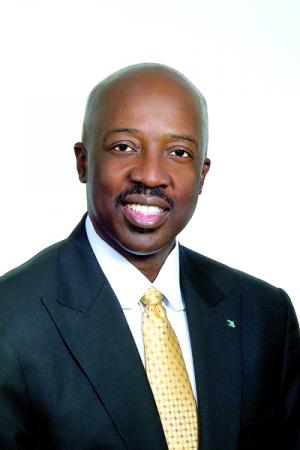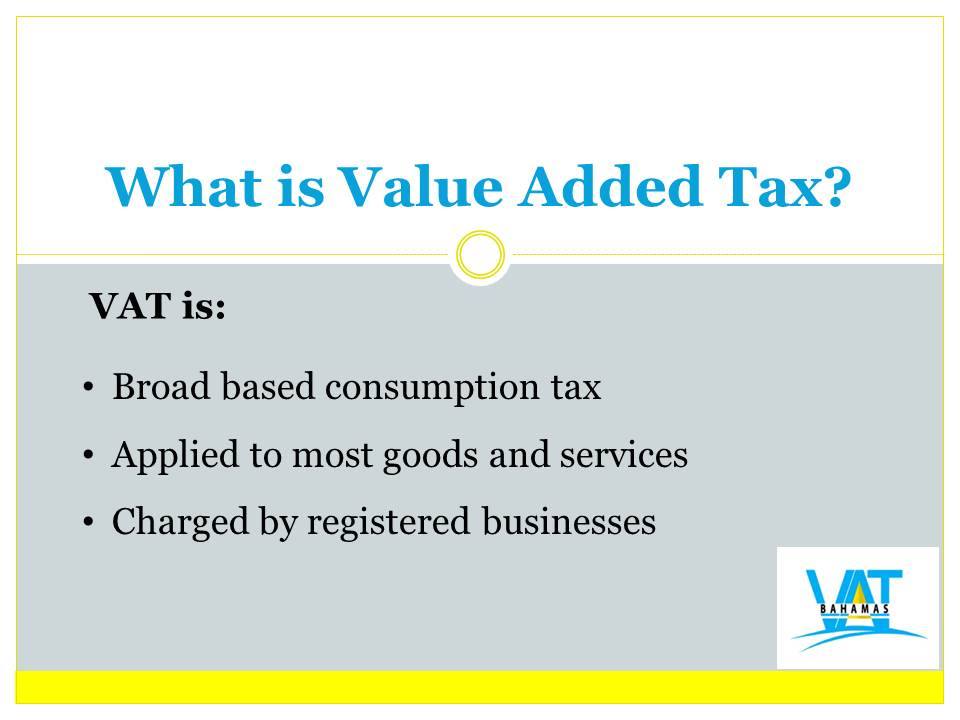Shane Gibson Contribution on VAT Bill 2014

Nassau, Bahamas – Remarks by Hon. D. Shane Gibson, M.P.,Minister of Labour and National Insurance and Minister of the Public Service during The Value Added Tax Bill, 2014 delivered on 13th August 2014:
Mr. Speaker, I wish to thank God once again for another opportunity to stand in this Honourable House as I represent the great people of Golden Gates. Mr. Speaker, I firmly believe that the Government is on the right track in moving ahead with the Value Added Tax (VAT) legislation as most progressive countries around the world including the European Union with its 27 member countries in the United Kingdom and Europe as well as Caribbean nations such as Trinidad and Tobago, Jamaica, Barbados, St. Lucia and Grenada have already adopted this form of revenue taxation and their economies are indeed benefiting from the same.
Mr. Speaker, St Anne’s asked us, if we have a plan to spend the additional money in taxes which VAT will bring.
Well….which Bahamas is he living in? We need funding for schools, roads, health care, airports, RBDF vessels, the purchase and maintenance of equipment, Bahamasair aging fleet, current public officers’ wages and increases, docks, the social safety net, securing of our borders (RBDF), securing of our country (RBPF), garbage collection, and the URBAN Renewal Programme.
It is always interesting to see how members opposite come into Government, run up huge Government debts, obligate the country to hundreds of millions of dollars in future debt, with no idea how the bills would be paid and then they come into this place and tell us and the Bahamian people, that now is not the time to introduce measures to meet these and future obligations of The Bahamas, which in most cases, they are responsible for.
Mr. Speaker
Whatever we come here to do, they say now is not the time and what we are doing is not the right thing to do, even though when they had an opportunity to do something, their solutions were inadequate.
If you listen to some persons commenting on national issues, one would get the impression that persons think that we go to bed one night and wake up the next morning, deciding to make major decisions impacting our country.
They give the impression that we don’t act, after exhaustive advice and consultation, from local and international advisors and stakeholders.
Then, sometimes, members opposite act as though all Governments of The Bahamas, don’t get most advice from the same persons and agencies.
“How does Government generate most of its revenue?” :
Taxes (customs duties, stamp duty, excise tax, various license fees etc) and other fees, for example, work permit fees.
Expenditure has been streamlined in all Ministries and quasi-government corporations which receive subsidies.
For many, many years, different Governments have been running a budget deficit and with these hundreds of millions of dollars in deficit each year, it NEVER takes into consideration, all of Government’s obligations.
The seriousness of our finances in The Bahamas are sometimes camouflaged by “one-off” payments, like the millions of dollars the Government got from the sale of BORCO, BTC, and stamp tax on the sale of the Commonwealth Brewery, etc.
It would be irresponsible for us as a Government to sit idly by and do nothing.
As you are aware, Mr. Speaker, VAT will be applied to most goods imported into The Bahamas and most services generated within The Bahamas. It is essentially a consumption tax which is borne or paid for by the final consumer.
Mr. Speaker, businesses, various merchants and service providers who are VAT registrants will benefit from this tax as they will be able to recoup the taxes they incur on all operating expenses which relate to the goods and services they supply to their customers. The difference in the taxes, is remitted to the Government of The Bahamas. This means that businesses will receive tax credit even if it is related to capital investments in their operations. Unlike customs duties, therefore, VAT will not be a sinking cost that remains within the business and thereby creates a disincentive to investments.
Therefore, Mr. Speaker, in a nutshell this type of revenue application and collection is not complicated except where persons intentionally set out to make it complicated. If everyone Mr. Speaker, applies himself to following the law they will find that the system can be made flawless or at least have minimal complications that can be easily corrected because when one looks at the provisions of the proposed legislation it is easily seen that the legislation is facilitative.
Mr. Speaker, only VAT registrants can charge VAT and only goods and services that are taxable can attract VAT rates and finally Mr. Speaker, only businesses and merchants and service providers whose businesses meet the VAT threshold of $100,000 of taxable sales and are VAT registered are legally entitled to charge VAT.
Mr. Speaker, I wish to turn my attention to the role that the Consumer Affairs Unit of my Ministry is expected to execute following the implementation of the Value Added Tax in January 2015.
As indicated by my colleague Minister of State for Finance, the Hon. Michael Halkitis, when he tabled the Value Added Tax Bill, 2014 in Parliament, “The Government of The Bahamas is reviewing its entire system of consumer protection to ensure that unscrupulous individuals do not use the process of tax reform as an excuse to adopt predatory practices. The Government is committed to enhancing these protections whether through legislative measures and the provision of additional resources.”
With that being said, Mr. Speaker, it is incumbent on my consumer affairs officers to step up their vigilance in their daily inspections of those merchants and service providers engaged not only in the retail and wholesale of goods on the breadbasket items, but with merchants and service providers legally registered to charge VAT to ensure that they are the only ones doing so.
Mr. Speaker, it is to be expected that the introduction of the value added tax system will usher in a new set of challenges for the Consumer Affairs Unit in terms of their ensuring that merchants and service providers do not take advantage of the consuming public by adding other charges to goods and services that are “vatable”.
Consumer Affairs officers’ workload will increase exponentially in the early stages of this new system, Mr. Speaker, and therefore it is essential that the necessary efforts be put in place to equip this Unit with the tools and manpower needs with the requisite skills to enable them to converse with the public in a professional and effective way for easy transition.
Mr. Speaker, my Ministry will be working in tandem with the Ministry of Finance to determine the ways in which the Consumer Unit and the Ministry of Finance can amalgamate their functions to ensure that consumers are protected consequent to the implementation of VAT. Consumer officers should therefore be well versed with the legislation pertaining to VAT so as to be able to explain the provisions of VAT to consumers and merchants/providers.
I am happy to announce that consumer affairs officers will be exposed to the fundamental training on VAT that is being delivered to the staff of the VAT Department, and that they will work closely with the Ministry of Finance in the education process for consumers. It is expected that an educational initiative will be undertaken and made accessible to all Consumer officers throughout New Providence and the Family Islands.
A further initiative, Mr. Speaker, can be undertaken to establish a set of protocols to be employed among various Government ministries and departments for cooperating with each other, offering assistance with information transfer to the appropriate agency to take the required action where infractions have been noted to be in contravention of VAT. Consumer Affairs officers will be able to access information on various businesses, for example, the listing of all VAT registrants, so as to better police those businesses and protect the consumer—indeed the general public will have access to the list of VAT registrants.
Some of the important elements of the consumer protection framework that are built into the VAT design are the following:
• The price on the shelf is the final price that the consumer will pay. In other words, there can be no further adjustment to the bill at the cash register, because the provision for VAT must have already been made.
• The cash register receipt must always itemize the amount of VAT that was paid. Business will not be able to claim that they are charging VAT and not be able to reveal it to the consumers.
• Receipts will have to display the tax payer identification number of the business as proof that they are allowed to collect the VAT.
• Like the business license, all companies that charge VAT will have to display their registration certificates.
Finally, Mr. Speaker, as you are aware, the Consumer (Protection) Commission having been appointed, will also play a major role in protecting the interest of consumers. This Commission exists to provide redress for any consumer who has been adversely affected by goods purchase or service not being provided in accordance with a contract for service. I therefore take this opportunity Mr. Speaker, to encourage all consumers to remain vigilant as they traverse the market place and report any and all infractions to the Consumer Protection Commission.
Mr. Speaker, the Golden Gates Constituency is pleased to support the Value Added Tax Bill 2014.









